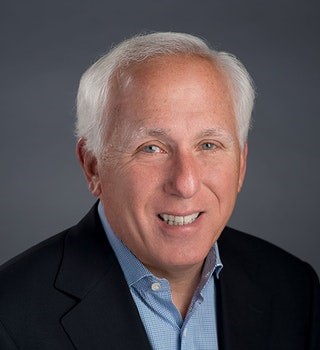On November 16, 2012, the Court of Appeals for the Ninth Circuit reaffirmed the need for plaintiffs and their attorneys to not only ensure their experts are well qualified but also that they can prove it to the court’s satisfaction before heading to trial.1
Plaintiff Henry Barabin was exposed to asbestos from 1964 through 1984 while working at the Crown–Zellerbach paper mill, which used dryer felts containing asbestos supplied by defendants AstenJohnson and Scapa. In November, 2006, Henry was diagnosed with pleural malignant epithelial mesothelioma resulting from exposure to asbestos. Henry sued AstenJohnson and Scapa.
AstenJohnson filed a motion in limine to exclude Henry’s doctors, Drs. Cohen and Millette, as expert witnesses. The district court excluded Dr. Cohen as an expert because of his “dubious credentials and his lack of expertise with regard to dryer felts and paper mills …” Additionally, the district court limited Dr. Millette’s testimony requiring disclosure to the jury that Dr. Millette’s tests were “performed under laboratory conditions which are not the same as conditions at [Henry’s workplace].” This limitation significantly diminished the strength of Dr. Millette’s prospective opinion. During a pre-trial conference, the district court reversed its decision to exclude Dr. Cohen’s testimony. The district court explained that in the Barabins’ response to the motions in limine, the Barabins clarified Dr. Cohen’s credentials, including that he had testified in other cases. The district court did not hold a Daubert hearing.2
The jury found in favor of the Barabins, and Henry was ultimately awarded damages totaling $9,373,152.12, plus $9,266.73 in costs. The defendants appealed.
The Ninth Circuit held the district court abused its discretion when it failed to conduct a Daubert hearing or otherwise make relevance and reliability determinations regarding expert testimony. In its role as gatekeeper, the district court determines the relevance and reliability of expert testimony and its subsequent admission or exclusion.3 The Ninth Circuit held:
Admission or exclusion under Daubert rests on the scientific reliability and relevance of the expert testimony. The expert’s opinion must be deduced from a “scientific method” to be admissible. (Citation omitted). “The test under Daubert is not the correctness of the expert’s conclusions but the soundness of his methodology….” (Citation omitted).
Daubert provided the following non-exhaustive factors for consideration in assessing the reliability of proffered expert testimony:
(1) whether the scientific theory or technique can be (and has been) tested, (2) whether the theory or technique has been subjected to peer review and publication, (3) whether there is a known or potential error rate, and (4) whether the theory or technique is generally accepted in the relevant scientific community.4
Moreover, in federal courts, the admission of expert testimony is governed by Federal Rule of Evidence 702, as elucidated by the Supreme Court in Daubert. At the time of the trial in this case, Rule 702 provided:
If scientific, technical, or other specialized knowledge will assist the trier of fact to understand the evidence or to determine a fact in issue, a witness qualified as an expert by knowledge, skill, experience, training, or education, may testify thereto in the form of an opinion or otherwise, if (1) the testimony is based upon sufficient facts or data, (2) the testimony is the product of reliable principles and methods, and (3) the witness has applied the principles and methods reliably to the facts of the case.5
Ultimately, the Ninth Circuit held the district court improperly allowed the parties to submit the experts’ unfiltered testimony to the jury because no Daubert hearing was conducted: the district court failed to assess the scientific methodologies, reasoning, or principles of Henry’s doctors and failed to consider any of the factors enunciated by Daubert.6 In other words, the district court’s decision to allow the expert testimony without making any gateway determinations regarding relevance and reliability constituted an abuse of discretion requiring a new trial.
The moral of the story is clear – Daubert is alive and well. Plaintiffs and their counsel must, despite the time and expense necessarily incurred, continue to ensure and demonstrate to the satisfaction of the court that their experts are qualified to testify.
1 Barabin v. AstenJohnson, Inc., — F.3d —-, 2012 WL 5669685 (C.A.9 (Wash.), 2012.
2 See Daubert v. Merrell Dow Pharm., Inc., 509 U.S. 579, at 589, 113 S.Ct. 2786, 125 L.Ed.2d 469 (1993) (setting forth the trial judge’s gatekeeping obligation to ensure that prospective expert testimony is reliable).
3 See Ellis v. Costco Wholesale Corp., 657 F.3d 970, 982 (9th Cir.2011)
4 Mukhtar v. Cal. State Univ., 299 F.3d 1053, 1064 (9th Cir.2002).
5 Fed.R.Evid. 702 (2010)
6 Barabin v. AstenJohnson, Inc., supra, 2012 WL 5669685 at 3.




